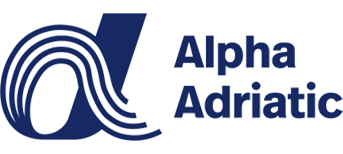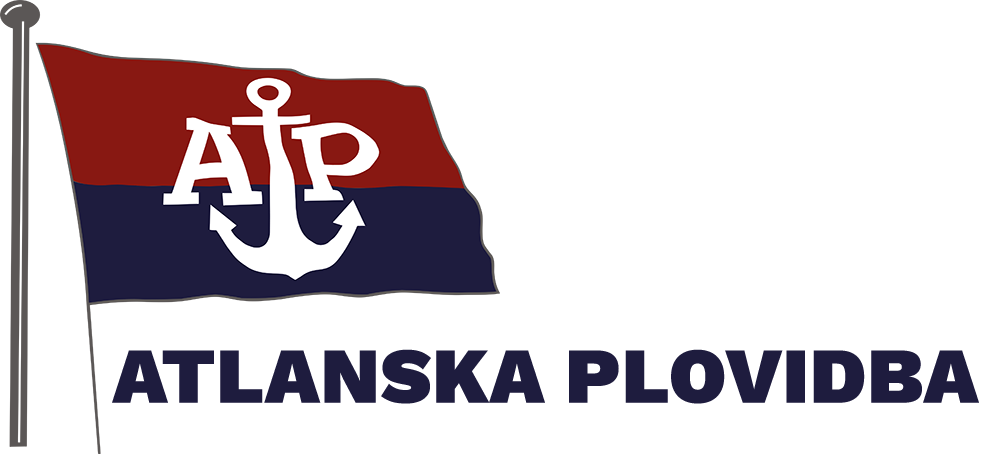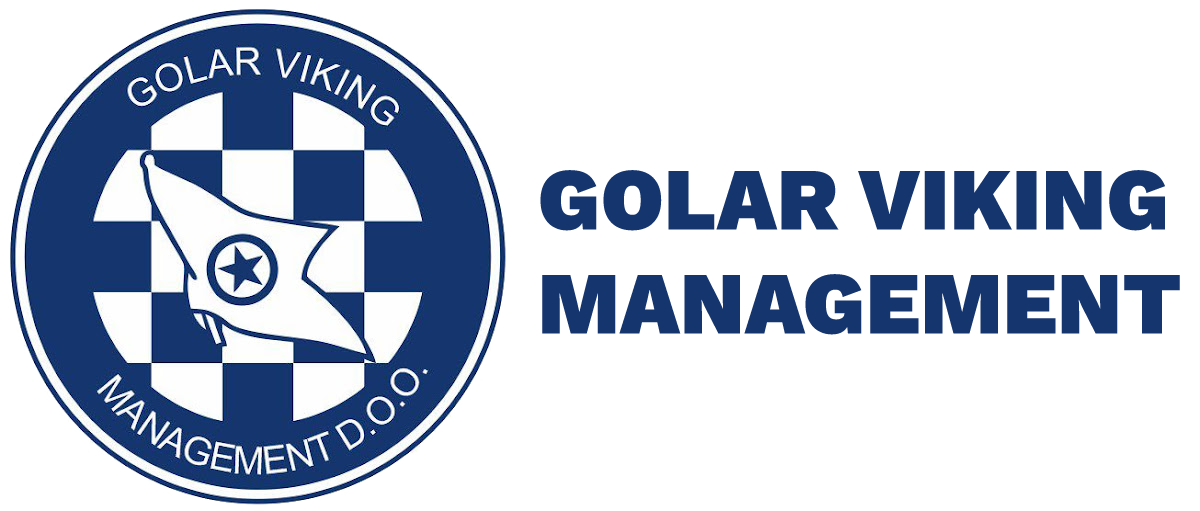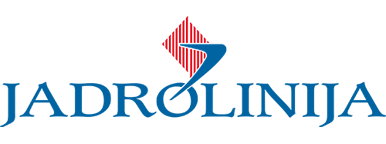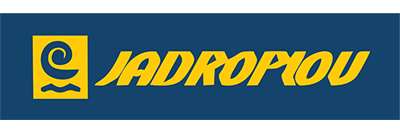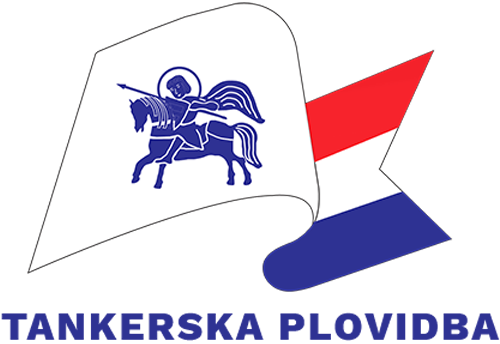The 86th Session of the Assembly of the Association and the signing of the National Collective Agreement (NCA) for Croatian seafarers on ships in international navigation
12.12.2018
86th Session of the Assembly of the Association
On December 10, 2018, the 86th session of the Assembly of the Association was held.
Attended members of the Assembly / Deputy Assembly members were:
Vicenco Jerković, Atlantska plovidba
Marinko Popović, Hrvatski registar brodova
Dražen Padovan, Jadranski pomorski servis
David Sopta, Jadrolinija
Branimir Kovačić, Jadroplov
Mario Pavić, Tankerska plovidba
The highlights of the agenda were:
- State of the shipping market and prospects for 2019
- Work Report from 2018
- Work Program for 2019
- Financial Plan for 2019
A decision on verification of the final text of the National Collective Agreement for Croatian seafarers on ships in international navigation (2019 - 2020)
The decision about the appointment of Director of CSA Mare Nostrum
The signing of the National Collective Agreement for Croatian Seafarers on Ships in International Navigation (2019 - 2020)
After the session of the Assembly, which verified the final text of the National Collective Agreement for Croatian Seafarers on International Sailing Boats (2019-2020), Mr. David Sopta, President of the Assembly of CSA Mare Nostrum and Mr. Neven Melvan, General Secretary of the Seafarers' Union of Croatia have signed the National Collective Agreements for Croatian Seafarers on Ships in International Navigation (2019-2020), which will apply from 1 January 2019.
.jpg)
Croatian Maritime and Inland Navigation Days in Zadar
05.12.2018
ZADAR - The celebration of this year 'Croatian Maritime and Inland Navigation Day' which is dedicated to Croatian Navy and Inland Navigation and all segments of the Croatian Maritime Sector will be held this year during two days in Zadar. The event will be organized by the Ministry of the Sea, Transport, and Infrastructure.
The event will start by the symbolic laying of the wreath in the sea for all missing seafarers and afterward, there will be a rich commemorative program filled with diverse contents from the domain of maritime affairs, maritime culture, education and science, and naval customs and skills. Also, the ceremonial ceremony of wreaths will take place in the envisaged order and at different locations.
- The competition of marine chefs will start at 10.00 am and it will be held in the yard of the Zadar Tourist Information Center (Cedulin Palace). The program will last until 2 pm and all citizens will be able to taste the prepared delicious seafood specialties free of charge.
- At the Maritime High School Zadar (Ante Kuzmanića 1) from 10.30 am to 11.00 am there will be a presentation called 'Project of the Ministry for Supply of Equipment'. Also, the Maritime High School Zadar will open its doors and show to all interested visitors the newly acquired teaching equipment.
- The University of Zadar at 11:00 am will start a program entitled 'Competition of Maritime Faculties' and the subject of the program will be 'How do I see Croatian Navy in the Next Five Year Period?'. The State Secretary for the Sea, Maja Markovčić Kostelac, will also attend the competition. The program will be held at the University of Zadar (Street Mihovil Pavlinović 1), and it will be open until 12.45 am. Director of CSA Mare Nostrum, Sandro Vidas, will participate in the jury of the competition.
The highlight on the first day of the event will be Gala Academy. Minister Oleg Butković and his associates will award recognition to individuals and organizations that have given a special contribution to the development of maritime and inland navigation. According to the Ministry of the Sea, Transport, and Infrastructure, the ceremony will start at 7:30 pm and it will be held in the Arsenal (Three Wells Square 1).
A session of the Technical Commission was held
29.11.2018
At the session it was discussed:
- Report from MEPC's 73rd Session
- Work Program for 2019
- Global Sulfur Cap 2020.
- LIFE Initiative
- Initiative for R & D in Enterprises - Application of liquefied hydrogen
- Project GUTTA - Project Presentation, University of Zadar and Association
Fourth Session of the Commission on Legal Issues and Insurance
23.11.2018
The 4th session of the Commission on Legal Affairs and Insurance was held on November 14, 2018
The following agenda items were:
- Amendments to the Maritime Code
- Ordinance on Determining the Health Capability of Crews of Maritime Ships
- Maritime Domain and Seaports Act
- Law on Transport in Linear and Occasional Coastal Maritime Traffic
- Ordinance on the highest permissible noise levels in the area where people live and work
- Work Program for 2019
It is envisaged that the Draft Amendments to the Maritime Code will be on the agenda of the Government meeting of 12 December 2018, which submits the final proposal for adoption to the Parliament of the Republic of Croatia. According to that, the remaining issues related to the Maritime Code were discussed: tonnage tax, yacht cruise definition and question clearing time.
The Ordinance on Determining the Health Capability of Crews of Maritime Ships has highlighted the problem of the unconstitutionality of a family medicine physician's statement on the health of seafarers, which causes ship-owners major material and other problems for the specifics of work and life on board.
It is proposed to initiate an amendment to the Ordinance on the Determination of the Health Conditions of Crews of Maritime Boats and to create a Working Group for the Amendment of the Regulations. It has also been noted that seafarers' psychological testing is only for employment, which is not enough and it is also necessary to initiate a change of tests at the Chamber of Psychologists.
It was emphasized that the proposal of the Maritime Domain and Seaports Act from September 2018 was too liberal regarding the quality of the market and business of our shipping companies. Also, the question of mooring and drifting should be settled by regarded Law because it was announced that in 2019, services of mooring and drifting should be paid to port captains at each take-off in coastal liner shipping.
The addition to this will be a proposal related to noise in ports and amendments to the Article. 149. ZPDML which defines the services of mooring and drifting. Completed draft proposal and amendments to the ZPDML will be aligned with the members and submitted to the Ministry of the Sea, Transport and Infrastructure.
Regarding the Law on Transport in Linear and Occasional Coastal Maritime Traffic, the abolition of the Agency for Coastal Maritime Traffic is foreseen. Also, for the year 2019 other changes are foreseen. The Work Program for 2019 of the Commission for Legal Affairs and Insurance will include the discussion and potential amendments to the Law on Transport in Regular and Occasional Coastal Shipping and the Rulebook on Conditions for Carriage of Maritime Cabotages in the Republic of Croatia.
CONFLICT RESOLUTION DAY AND MEDIATION AWARDS
22.10.2018
On October 18, 2018, Croatian Mediation Association traditionally marked "World Conflict Resolution Day" and Mediation Awards at Hotel Panorama Zagreb.
Croatian Shipowners' Associaton Mare Nostrum received a "Mediation Award for Association of Employers 2018”.
The theme of the panel was "Mediation - a look at the future". The moderator was Srđan Šimac and other panelists were:
Dalibor Čajkovski, a lawyer in Rijeka and a conciliator
Darija Knez Grbcic, Judge and Head of the Municipal Court Conciliation Service in Rijeka,
Petar Petrić, a lawyer in Zagreb and co-rapporteur, president of the Supervisory Board of HUM,
Anda Kostijal, LL.B, senior adviser at the Croatian Ministry of Economy, Entrepreneurship, and Crafts,
Dalibor Ružić, LL.B, President of the Commission for Alternative Dispute Settlements in the Ministry of Justice of the Republic of Croatia,
Branka Sremac, Director of Legal Affairs and Human Resource Sector - Croatia Airlines d.d.
The session of the Assembly of CSA Mare Nostrum
19.10.2018
On October 19, 2018, at the Association of Croatian Shipbuilding Industry Jadranbrod, the 85th session of the CSA Mare Nostrum was held. Also, Mr. Branimir Belančić Farkaš, Head of Sector at the Ministry of the Sea, Transport, and Infrastructure was present.
Discussion was regarding the state of the shipping market, the internal activities of the Association and preparations for the new financial year in 2019.
Also, the GUTTA project which is a cooperation program between Italy and Croatia was presented. The project will start in 2019 and CSA Mare Nostrum will participate as a partner.
Session of the Financial Commission
15.10.2018
On October 11, 2019, at the Association of Croatian Shipbuilding Industry Jadranbrod, the 50th session of the Financial Commission was held. Present members were: Mr. Vicenco Jerković (Atlantska plovidba), Ms. Nela Livačić (Brodospas), Mr. Branimir Vujičić (Jadranski Pomorski Servis), Mr. Ivan Šmid (Jadrolinija), Ms. Sanja Bužančić and Mr. Dalibor Filipović (Jadroplov), Mr. Nikola Koščica (Tankerska plovidba) and Mr. Vidas from CSA Mare Nostrum.
There was an intensive discussion about the preparation of the shipowners because of the requirement to reduce sulfur oxide emissions from ship systems, so-called IMO Global Sulfur Cap 2020. Moreover, the advantages and disadvantages of SOX emission filtration equipment, so-called scrubber, were discussed.
In addition to the report about international market shipping situation, shipping companies pointed out the possibility of growing freight with a note that the market is slow. However, it is steadily recovering with shorter cycles of falling and growth. The good news is that national navigation recorded more passengers than in 2017.
Mr. Vidas informed the members that activities of a newly approved GUTTA project should start on January 1, 2019, and CSA Mare Nostrum will participate together with Croatian and Italian partners. A total value of the Project is 1.2 million euro and it is the cooperation of Interreg Italia-Croatia VA.
There was a discussion about Croatian shipping as an added value to the EU and members are familiar with the possibility of applying on the Operational Program Competitiveness and Cohesion 2021-2027.
.jpg)
Tankerska plovidba sold a ship
27.09.2018
On September 27, 2018, Tankerska plovidba sold a ship called “Nin”.
To a new owner we wish a fair winds and following seas!
.jpg)
Underwater ROS workshop at the BtS confirmed on 2nd of October 2018
13.09.2018
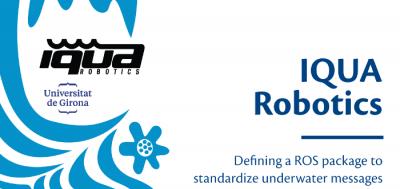
Breaking the Surface (BtS) workshop, which brings together a significant part of the marine community will be held from 30 September until 7 October 2018 in Biograd na Moru, Croatia. On 2nd October 2018., in the scope of the BtS , the Computer Vision and Robotics Research Institute of the University of Girona along with IQUA Robotics is organizing a workshop to discuss the adoption of conventions in the underwater ROS community. If you plan to attend the underwater ROS workshop please fill this confirmation form and here you can find for more information about the meeting.
www.labust.fer.hr
FIRST HYDROGEN POWER PLANT IN US PORT
18.07.2018
Toyota is building what it calls the world's first Megawatt-scale 100% renewable power and hydrogen plant at the US Port of Long Beach.
The Tri-Gen facility will be the first Toyota facility in North America to use 100% renewable power using bio-waste sourced from California agricultural waste to generate water, electricity and hydrogen.
“For more than twenty years, Toyota has been leading the development of fuel cell technology because we understand the tremendous potential to reduce emissions and improve society,” said Doug Murtha, group vice president- Strategic Planning.
“Tri-Gen is a major step forward for sustainable mobility and a key accomplishment of our 2050 Environmental Challenge to achieve net zero CO2 emissions from our operations.”
Hydrogen power
When it comes online in 2020, Tri-Gen will generate approximately 2.35 megawatts of electricity and 1.2 tonnes of hydrogen per day, enough to power the equivalent of about 2,350 average-sized homes and meet the daily driving needs of nearly 1,500 vehicles.
The power generation facility will be 100% renewable, supplying Toyota Logistics Services’ (TLS) operations at the port.
Tri-Gen is a key step forward in Toyota’s work to develop a hydrogen society. In addition to serving as a key proof-of-concept for 100% renewable, local hydrogen generation at scale, the facility will supply all Toyota fuel cell vehicles moving through the Port, including new deliveries of the Mirai sedan and Toyota’s Heavy-Duty hydrogen fuel cell class 8 truck, known as Project Portal.
Grand plans
To support these refueling operations, Toyota has also built one of the largest hydrogen fueling stations in the world on-site with the help of Air Liquide.
Toyota continues to partner with a broad range of companies to develop new hydrogen stations. That includes a partnership with Shell that represents the first such collaboration between a major automotive and major oil company.
http://www.greenport.com
ECSA welcomes the signature of the EU-Japan Economic Partnership Agreement (EPA)
18.07.2018
The EU and Japan yesterday signed the EU-Japan Economic Partnership Agreement during the 25th EU-Japan summit in Tokyo. The European Shipowners welcome the signing of a highly ambitious trade agreement between two of the world's largest economies. “At a time that unilateralism and protectionism are rising, the EU and Japan are sending a strong message in support of free, fair and rules-based trade”, said ECSA’s Secretary General Martin Dorsman.
The agreement with Japan will remove the vast majority of customs duties that cost EU companies exporting to Japan €1 billion a year and will lead to a substantial increase of the EU exports to Japan. “It also contains obligations to maintain open and non-discriminatory access to international maritime services such as transport and auxiliary services, as well as access to ports and port services,” Dorsman reiterated.
“Shipping needs global trade to exist and global trade cannot exist without an efficient shipping industry. Around 90% of world trade in goods is carried by the international shipping industry and European shipowners control 40% of the world’s merchant fleet and operate shipping services all over the world,” he concluded.
European Shipowners look forward to the quick ratification by the European Parliament and the Japanese Diet and the efficient implementation of this agreement.
Martin Dorsman
Secretary General
ECSA - THE LATEST FROM BRUSSELS
ECSA met DG ENVI to discuss ship recycling
16.07.2018
The ECSA secretariat met with ENVI Director Mr. Sadauskas and two of his staff members to discuss the latest state of play of the ship recycling dossier. ECSA presented its paper of estimates on the recycling capacity needed for EU shipowners. Quite an extensive discussion followed whether EU shipowners could and should make use of existing EU yards. Mr. Sadauskas informed the secretariat that they were making calculations together with EMSA based on actual ship recycling figures. We agreed to be in contact on this. ECSA informed the Commission about the different initiatives the industry is taking – drafting a position paper, the drafting of a joint industry letter to Commissioner Vella and the up-coming visit to Alang. The new visit to Alang was warmly welcomed by the Director. He made reference to very critical reports about the real situation in India by the former case handler and was really interested to see what kind of progress has been made. ECSA also brought forward the question of having Turkish yards on the list. The Commission acknowledged the sensitive question but referred to higher levels within the Commission that are dealing with the EU – Turkey relations. They informed the secretariat that the Cyprus delegation, when relevant to the discussion, has brought forward their concerns and firm position about Turkey in all meetings.
European Parliament’s Transport (TRAN) Committee discusses the Port Reception Facilities Directive
On the 10th of July the TRAN Committee discussed the draft report of MEP Gesine Meissner (ALDE, DE) concerning the Port Reception Facilities for the Delivery of Waste from Ships. MEP Meissner provided an overview of the main points included in the draft report. She stressed the need to investigate to what extent Sulphur, extracted from air emissions by open loop scrubber systems, would have a negative impact on the receiving surface water. Whilst many MEPs welcomed the draft, they did raise some issues that required further clarification, such as: the 100 % indirect fee system, the exclusion of small ports, the inclusion of more types of waste, the green ships concept, incentives for fishermen to fish for litter and short sea shipping provisions. MEP Deirdre Clune (EPP, IRL) mentioned the proposal from the Commission (COM) to MEPC 73 on the action plan on marine litter, and the fact that in the proposal the COM proposes the 100% indirect system to the international level, while it has not even been agreed yet at the EU level. The COM thanked the rapporteur and stressed that the proposal only looks at ship-generated waste, reflecting MARPOL provisions. In response to the request by some to add more waste streams to the proposal, the COM recalled that this would go beyond MARPOL and that it would be difficult to enforce too. On short-sea shipping, the Commission supported the objective, but the definition refers to all intra-EU traffic, therefore it would exclude too many ships from the scope of this directive. On the points raised regarding not to oblige vessels leaving EU ports to deliver all waste, the COM said that this could be accepted but that there should be strong guarantees that ports outside the EU can handle this waste. MEP Meissner concluded by saying that she was aware that the Greens wanted to include offshore platforms to the scope of the directive, but that it should be analysed further. ECSA had been in touch with a few MEPs before the discussion and was pleased to see its concerns reflected upon in the meeting.
ECSA speaks at a Visa code and Humanitarian Visas hearing in the European Parliament
The European Parliament’s Committee on Civil Liberties, Justice and Home Affairs (LIBE) last week organised a hearing on Community Code on Visas (Visa Code). The hearing was chaired by MEP Juan López Aguilar (S&D, Spain) who is also the rapporteur of the file. He expressed his frustration that this file is taking so long time to get anywhere. The process in the Council has been blocked by discussion on security rather than focusing on people who want visas for legitimate purposes. Tim Springett, the chair of ECSA Social Affairs Committee was invited to comment on behalf of ECSA and European Transport Workers Federation (ETF). He made detailed comments on a number of articles and specifically underlined the necessity to ensure multiple-entry visas for seafarers for joining, leaving and taking shore leaver from ships. He reminded that the single-entry visas make it challenging for seafarers to join and disembark from ships when they are in the Schengen area. He welcomed the fact that the application processing time in the new proposal has been suggested to be reduced, and the validity of such visa proposed to be made longer than is currently the case. Both the Austrian Presidency’s representative and the Commission’s representative mentioned the seafarers’ special situation in their interventions, and a few MEPs also acknowledged the challenges. The Austrian Presidency said they are keen to make sufficient progress with the file so that it can be concluded before the EP elections next year. MEP López Aguilar was obviously pleased with this promise. Please find ECSA, ETF and ITF position paper on the matter here.
THE WEEK AHEAD
17.7 - 2nd Technical workshop on CE Delft study short term measures CO2 emissions reduction - Brussels
ECSA
IBIA Pointers for Problem Fuels: What Should Ship Owners Do?
18.06.2018

A significant number of ships have experienced serious operational problems – chiefly sticking/seizing fuel pumps and in some cases filter blockages – after lifting bunker fuels from the US Gulf region since late March and during April/May. Most cases have reportedly been caused by intermediate fuel oils (IFOs) bunkered in the Houston area, though there are indications that similar problems have been caused by fuels bunkered in Panama.
At this stage there are differing views as to the root cause of this problem and how to mitigate the various risks. Several fuel testing agencies have reported that the fuels met ISO 8217 specifications during routine testing against the standard. It was only when vessels began encountering problems they began forensic-level investigative fuel analysis. Reports from testing agencies have identified certain commonalities between these fuels indicating they contain chemical contaminants from non-petroleum sources. The most commonly reported findings include phenols and Tall Oil but the reports from testing agencies are not conclusive and their investigations are continuing.
It seems almost certain, however, that the fuels contravene Clause 5 in ISO 8217 and Regulation 18.3 of MARPOL Annex VI which broadly state that fuels shall not contain any material in a concentration that adversely affects the performance of machinery.
Is This New?
Over the past 30 years there have been episodes around the world where ship owners faced a surge in quality issues. Usually, the origin of problem fuels has been limited to a specific geographic area. Unfortunately, the nature of the contamination can often be so obscure that no amount of routine analysis will make the defect apparent until the fuel proves defective in use and the subsequent detailed forensic examination identifies the cause.
In many of these episodes, the source of the contaminant is never adequately identified, but in summary, the root cause was a lack of control of the quality of cutter stock used in the marine pool.
IBIA has published a “Best practice guidance for suppliers for assuring the quality of bunkers delivered to ships” a nd we believe that by following the recommendation in in Chapter 4, in particular 4.2 – Quality control during production of bunkers and 4.3 – Quality control in the supply chain, would improve control of the blend components used and help to prevent such cases.
What Should We Do?
As an industry association we are obliged to address the concerns of our ship owner members. In this instance, a useful question to address for ship owners would be “What should I do to ensure that this doesn’t happen to me?”
It is difficult to answer this precisely when it hasn’t yet been universally agreed what “this”is; however, here are some pointers:
- If you have recently bunkered in the Houston area or Panama, it is strongly recommended to get a solid overview of the quality of the fuel prior to using it.
- If you do use it without going beyond routine ISO 8217 quality tests, pay close attention to fuel oil system components, in particular fuel pumps and filters.
- Consult technical managers/chief engineers within your own company and/or from other technical service providers, including your bunker supplier(s).
Source: International Bunker Industry Association
III ADRIATIC MARITIME LAW CONFERENCE GRADO, 24-26 May 2018
16.05.2018
Preventing pollution from liners and ferries has become a priority for Croatian government and shipping companies involved in the passengers’ transport in the Adriatic. Paper covers implementation of international legal instruments (like revised Annex VI of MARPOL with reduction of global sulphur limits in fuel oil on board ships by January 2020) and EU law (Regulation 2015/757 on the monitoring, reporting and verification of carbon dioxide emissions from maritime transport). Their application to Croatian passenger fleet, analysis of various aspects of marine and air pollution prevention measures: control of air emissions by types of diesel fuel and possible implementation of scrubber equipment, potential introduction of LNG as fuel in passenger traffic, measures related to ships’ recycling and IHM certification, acceptable use of antifouling coating on passenger ships, cavitation sludge treatment and reception facilities in Croatian ports.
Programe and Registration Form can be obtained here:
CONFERENCE PROGRAMME
REGISTRATION FORM
Happy Easter
30.03.2018
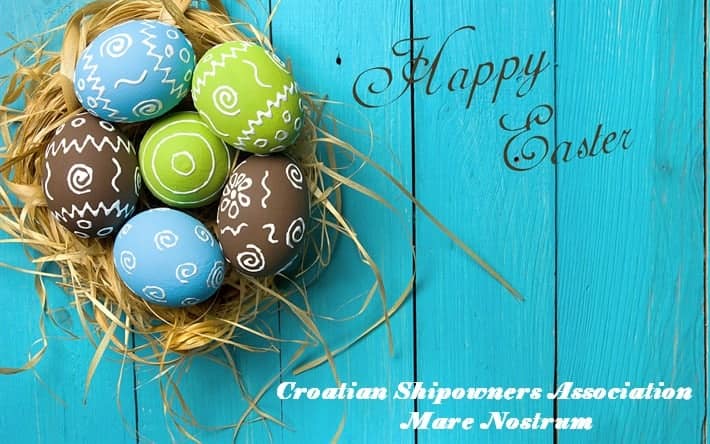
The Economic Impact of the Croatian Shipping Industry, Oxford Economics
08.02.2018
This report provides an assessment of the impact of the Croatian shipping industry on the economy of the Republic of Croatia. It has been prepared for the Republic of Croatia’s Ministry of the Sea, Transport and Infrastructure and Croatian Shipowners’ Association.
This study sets out the economic benefits supported by the Croatian shipping industry, in terms of its GDP contribution and the jobs it sustains.
Study and the presentation can be downloaded here.
1. Study
2. Presentation
.png)
COOPERATION IS THE KEY TO FERRY INDUSTRY’S FUTURE
19.01.2018
Interferry CEO Mike Corrigan explains how the trade association’s “stronger together” mission is helping to shape outcomes on the pressing issues of safety, security and the environment.
Last April I took the helm of Interferry after 14 years in leadership positions with Canada’s BC Ferries – the last five as president and CEO. The past ten months in my new role have reinforced a core conviction forged during my previous experience in the industry. Both as an operator and long-time Interferry director, I saw that our members are stronger when we work together to embrace opportunities, overcome challenges and share our knowledge for the benefit of the entire ferry sector. This belief is now being reaffirmed as the association further builds on its mission as the industry’s global voice.
A prime example came in October at our 42nd annual conference in Split, Croatia, with the introduction of our new Domestic Ferry Safety Committee. Formed to support developing nations, the committee’s first task is to identify drivers for change and carry out a risk assessment. We will then draw up an action plan to reach out to potential collaborators and funding partners. The initiative has been prompted by statistics showing that 93% of fatalities occur on domestic routes and have totalled at least 60,000 deaths over the past 50 years – a toll that is almost certainly under-estimated. Of the known fatalities, no less than two-thirds of these occurred in just seven countries, notably in the Philippines, Bangladesh and Indonesia. There could hardly be a stronger case for pulling together in the common cause of safety.
Meanwhile Interferry is working closely with the European Maritime Safety Agency (EMSA) to identify required, relevant and realistic changes to current fire protection regulations following a string of fire incidents on ro-ro and ro-pax ships in recent years. Our initial findings indicate that most of the fire risk relates to the cargo carried rather than the vessel itself. It’s become particularly clear that electrical connections – such as those for reefer units – need special attention, but there are also valid concerns on the functionality and effectiveness of traditional detection and extinguishing systems. Several of our members are developing new internal practices, which will form the basis for a second round of Interferry fire safety best practice guidance during 2018.
Alongside this, Interferry has now launched a Security Committee, which will likewise develop a best practices guide over the long term. The committee is comprised of company security officers from a dozen operators and has been established with the primary function of facilitating experience-sharing among members. To an even greater degree than other major issues such as safety and environmental regulations, security measures will need to be more fully addressed on a risk basis, and in close cooperation with local and national authorities. We do not expect any universal new requirements from the international regulator, but we will position ourselves to help members better engage in discussions on voluntary measures and local requirements.
The environment is another area where strength in unity continues to be a guiding principle in protecting the ferry sector’s interests while working to ensure the well-being of Planet Earth. I’m pleased to say that the International Maritime Organization (IMO) is making good progress on developing short, medium and long-term requirements on greenhouse gas emissions from international shipping – helped along the way with sector-specific interventions from Interferry thanks to our consultative status.
Some impatient countries, spearheaded in particular by the European Union (EU), are threatening to impose regional measures. In November the European institutions agreed to hold off making their own regulations while they wait to see what the IMO decides during 2018. The ferry sector is relatively well placed to meet future requirements, as our frequent port calls will facilitate the use of alternative fuels and will also enable the benefit of electric power from shore installations. Our main concern is the recent discussion on mandatory slow steaming, which may well be a solution for some deep-sea segments, but certainly not for the bustling ferry business.
The background to all this stems from some ten years ago, when the EU member states pushed other IMO members to agree to binding requirements on reducing CO2 emissions. This was to be linked to some form of market-based mechanism such as an Emission Trading System (ETS). At that time, the EU’s forceful campaigning back-fired quite dramatically with developing countries blocking any agreement on resolutions of this kind. Several years without constructive dialogue ensued, but since then we have nevertheless seen the successful introduction of technical energy efficiency requirements for new ships and operational monitoring of fuel consumption.
Supported by several other industrialized nations, the EU bloc is again pushing the IMO, albeit with the ‘wait and see what happens in 2018’ proviso. As such the EU side has drawn a line in the sand – either there are ambitious binding global requirements effective from 2023, or they will unilaterally impose requirements for all ships calling at EU ports. It should be noted, however, that the 2013 global revolt to their inclusion of international aviation in an EU-run ETS left a distinct impression on some of the European institutions and led to their November decision not to include shipping in an ETS – at least for now.
As I have indicated, from a ferry industry point of view, we are not overly concerned with the impact of future climate regulations. Our members have improved their efficiency dramatically over the past generation of ferries and huge strides are still being taken, such as the rapidly increasing electrification of ferries. Most would agree that, when the dust has settled, there will be a cost associated to CO2 emissions, but the general prediction is that such costs will be in the order of magnitude of the normal fluctuations in fuel prices. Although that is not exactly welcome news for the bottom line, such costs are manageable.
The initial discussions on speed reductions for ships are more worrying. The main attraction of ferries as a mode of transport is that we can compete with highways and aviation. Slowing down has, on average, been proven as a good way to temporarily mitigate overcapacity in deep sea trades, but it would be very challenging to the ferry business model.
Furthermore, in a segment where operating speeds for conventional ferries range from 12 to 26 knots, it is hard to envisage an equitable way of mandating slower speeds in our particular sector. Interferry, with ample support from its members, has spent a lot of resources trying to make the existing requirements of the Energy Efficiency Design Index (EEDI) work as intended. If there is any hard-earned lesson from that exercise, it is that – unlike tankers, containerships and bulkers – the ferry industry is far too diverse to be treated as a homogenous entity.
We will continue to engage with the IMO and the EU to help them pull the right levers for significant CO2 reductions over the coming decades… but by working together with our members and the authorities, we will make it very clear that one size does not fit all.
Published in the January 2018 edition of Marine News.
http://www.interferry.com
Load more
.jpg)
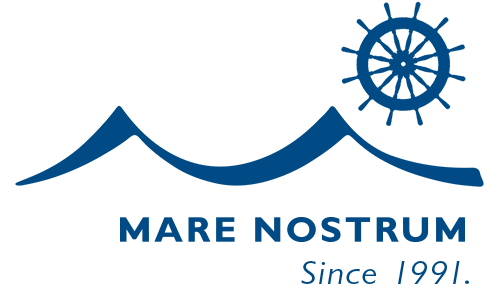
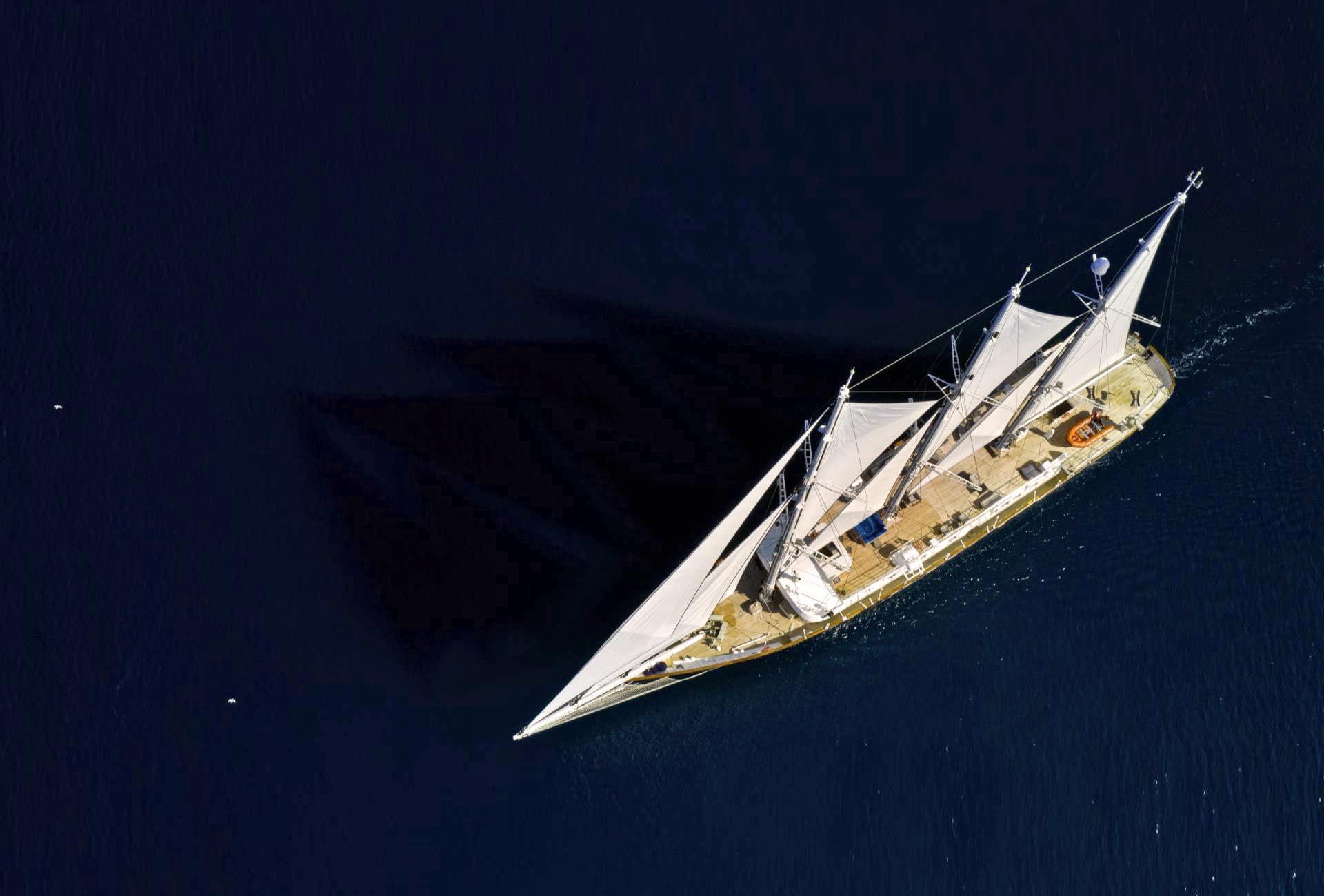
.jpg)
.jpg)



.png)
